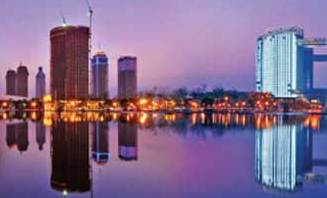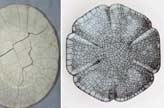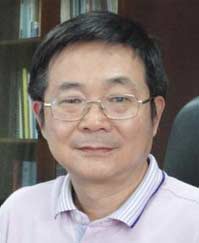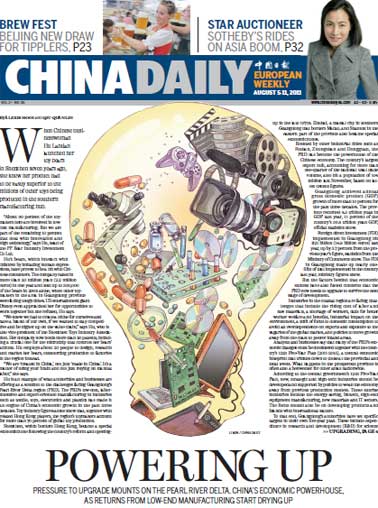Powering up
Updated: 2011-08-05 11:35
By Alexis Hooi and Qiu Quanlin (China Daily)
"We have increased investment in our water treatment facilities, for example, because of the huge amounts of water we use to wash our jeans," Wu says. "We need to think about how we can keep our business sustainable, beyond short-term economic gains."
|
|
"It took us three decades to get here, so it will also be some time before we can change," says Chen.
"But we should not totally dismantle or abandon the industries that our success is built on. The idea is to improve and innovate from these sectors. Some of the businesses are already doing this in the electronics and even furniture industries," he says.
"The industries in the PRD are built on strong foundations and draw their strengths from business clusters. We should continue to build on these.
"The government must be very careful in directing the change. It should just provide the framework and necessary support. It is still best to let the businesses and the market make the changes and the upgrade."
The PRD also lacks the centers of learning like the Peking and Tsinghua universities in Beijing, or the Shanghai Jiao Tong in the financial hub, that are needed to attract top talent to work here, Vettoretti in Shenzhen says.
"Most of the jobs for such talent are lacking across many industries here. Most of our members will say that getting and retaining top talent is one of their most important priorities. If you want go 'change the spots of your skin' and go high-tech, obviously you need top people. Does the Pearl River Delta currently have that? That's a big question mark.
"There are some good universities here and they are also developing joint programs with Hong Kong and Macao, but this is work in progress. For the time being, they are caught in between wanting to be something else and what they have always been."
Chen from Sun Yat-sen University says any development plan for the PRD will also have to seriously take into account the relations between the migrant population that provides the labor for the region's factories and the resident population who are more well-off.
"A small town could have 300,000 workers who have come from other provinces and areas, against a resident population of about 50,000 people," Chen says.
"It might not be noticeable in the initial stages, but the differences in lifestyle and access to education or other public services that favor the long-time residents could become more pronounced and that might become problematic."
Nevertheless, many agree that the PRD's low-end model is unsustainable in the long run. Factors like the over-dependency of exports, environmental degradation, factories moving out to cheaper Asian countries like Vietnam and Cambodia, and rising costs in a fast-urbanizing Guangdong are all indicative of the changing trend, Vettoretti says.
He says the PRD will similarly need to invest more in the global market if it wants to upgrade.
"Historically, the PRD has also never been too upfront in English terms, to promote all the incentives or new industries and what is available from the government," he says.
"They need to communicate all these efforts to boost the PRD to the public, at an international level beyond the Hong Kong or Taiwan businesses."
The PRD is also made up of nine distinctive centers of industry that still lack a structured and province-based agenda with shared interests, he says.
"There should be more integration and discussion at the provincial level to attract the new industries and transform the model. To ensure that the new industries under the new model work, they need a fast flow of information, goods and people within the region," Vettoretti says.
To that effect, some of the improvements to infrastructure from the Guangzhou Asian Games last year, the Shenzhen Summer Universiade this year and the Chinese government's 4-trillion-yuan stimulus package since the economic crisis has helped, he says.
Susanne Zhang Pongratz, chief representative of the Austria-based Raiffeisen Bank International's Zhuhai office, says the PRD still offers many advantages for foreign businesses.
"The Pearl River Delta has always been one of the first few areas to enter China, it was one of the first places to open up to outside world and many businesses started here," says Pongratz, who is also a member of the PRD board under the European Chamber of Commerce in China.
"The region was hit quite badly during the financial crisis because many of its businesses were small enterprises involved in intensive labor with small profit margins. Some small and medium-sized companies have also had some difficulties in securing loans from banks so there are some challenges ahead, but they will be manageable," says Pongratz, whose bank has been in Beijing for more than a decade and has been operating in the PRD for five years. The bank focuses on Chinese customers, and complex import and export as well as yuan transactions involving commodities. It also deals with multinational companies and big Chinese companies exporting to Eastern Europe and Russia.
"The companies with small profit margins here are trying to move away from export-driven financing, to focus on the domestic sector and move up the chain, but these cannot happen overnight," she says.
Pongratz says demand in Eastern Europe for Chinese goods such as household appliances and Chinese construction companies remains high and this continues to bode well for the PRD.
"Here in Zhuhai, industries including the oil refinery sector and harbor are still attractive. It is developing nicely and becoming more and more international," she says.
"Our initial focus was on Eastern Europe because that's where we started. But China, together with the rest of Asia, is definitely gaining in importance."
E-paper

Double vision
Prosperous Hangzhou banks on creative energies to bridge traditional and modern sectors
Minding matters
A touch of glass
No longer going by the book
Specials

Ancient plate broken
An ancient porcelain plate was accidentally destroyed during a research in the Palace Museum.

Selfless actions
A 20-year-old girl becomes an Internet star for giving her first kiss to a drowning old man.

Space race
Homebuyers are learning the hard facts of supply and demand: too many cars and too few parking spaces.

